Slang has always fascinated me. My father, who grew up in the council estates of Slough during the second world war, knew slang words for most situations, good and bad, which I would hear regularly around the house as a child.
Somewhere in my early 20s, I stumbled across a cheap secondhand reprint of a book by an 18th-century Londoner named Francis Grose, which recorded the everyday speech of the people he encountered in the low drinking dens, bagnios and rookeries around Covent Garden and St Giles. First published in 1785, A Classical Dictionary of the Vulgar Tongue remains for me the single most important slang collection of them all. Bawdy, mocking, occasionally brutal, superbly inventive and yet somehow overwhelmingly good-hearted, it helped fuel my interest these past 30-odd years in the language of everyday people – not as heard in drawing rooms or public orations, but late at night three sheets to the wind, or dodging shells in the trenches, when circumstances call for choice expressions that sum things up or cut them down.
Having spent the past four years writing a history of English slang, it gradually became clear to me that the digital age is altering slang: both the way it evolves and is spread, and attitudes towards it. Many of the historical sayings documented in my book – such as referring to a modern-day sex worker by the 13th century term, soiled dove, or employing a 200-year-old name for a gay man, backgammon player – would now be unacceptable to someone or other online, busily taking offence on behalf of everyone else. It is all right to publish these terms in a book – or deploy a magnificent variety of them in an award-winning series such as The Sopranos – but try uttering any of them on social media and see how far that gets you. Is this form of speech under threat?
Of course, slang has always had its detractors. Ramsay MacDonald, Britain’s first Labour prime minister, declared in 1925 that using slang in conversation was the mark of “decadent minds”, and that such talk “murders truth itself”. The American lexicographer Noah Webster dismissed it in his original 1828 dictionary as “low vulgar unmeaning language”. The poet Carl Sandburg defined slang rather more poetically as “language that takes off its coat, spits on its hands and goes to work”.
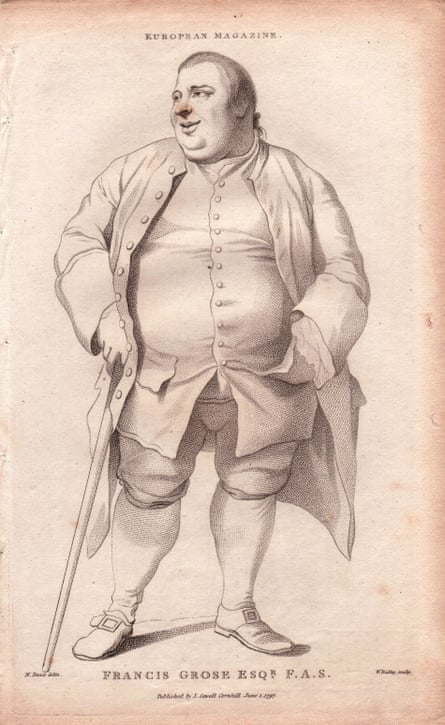
Whether it goes to work or not, people have often determined that slang should be kept out of school. In October 2013, a London academy attempted to outlaw the use of certain slang words and phrases among its pupils, to help them perform well at interviews for universities and jobs. To that end, the school put up signs that read:
BANNED WORDS:
COZ
AINT
LIKE
BARE
EXTRA
INNIT
YOU WOZ and WE WOZ
Beginning sentences with BASICALLY
Ending sentences with YEAH
Much slang starts out as a kind of low-level guerrilla warfare directed at straight society, designed to keep out the squares, or annoy them, and is then abandoned by the originators once the words have become common currency. Groovy was the hip new jazz word of the early 1940s, batted around by bebop musicians and pulp novelists. Twenty years later, it was as mainstream as they come, co-opted by every branch of the media – so that today it is routinely taken for a 60s term. Ageing jazzers were probably choking on their berets listening to Simon and Garfunkel in The 59th Street Bridge Song (1966) singing about “feeling groovy”, as a once exclusive in-word suddenly flooded the airwaves.
One obvious drawback for the slang user is that often the hip word of today turns unexpectedly into the embarrassingly square word of tomorrow. Indeed, the word “hip” itself only became hip after its predecessor, “hep”, fell out of favour, as noted by Blossom Dearie in the song I’m Hip (1966): “When it was hip to be hep, I was hep”. One example of this kind of change has a personal resonance for me. In 2000, I published a book of words and phrases drawn from a lifetime’s obsession with the language of vintage crime fiction, film noir, jazz, blues, hillbilly, rockabilly and rock’n’roll music. I called the book Straight From the Fridge, Dad, an adaptation of a slang phrase meaning “cool” that I’d heard in that jewel among teenage exploitation films, Beat Girl (1960). The book was a compendium of phrases associated with the more outre fringes of society – musicians, mobsters, beatniks, con artists – of the first half of the 20th century, the language of outsiders. In the book’s subtitle, I used a term that most jazz musicians of the late 1940s bebop era would have been proud to bear – hipster – meaning someone who was one of the sharpest, the most in the know, and I had no problem calling my book A Dictionary of Hipster Slang.
Two years after it was published in the UK and the US, an American book appeared called The Hipster Handbook by Robert Lanham, full of nerdy lifestyle material seemingly aimed more at ivy league squares, and somehow this has become the default modern meaning of the term: geek chic. It describes people who, according to Lanham, enjoy “strutting in platform shoes with a biography of Che Guevara sticking out of their bags”, which shows how far the word has travelled since the days of alto sax giant Charlie Parker or boogie pianist Harry “the Hipster” Gibson. In Britain these days, the word hipster is frequently used as an insult, in much the same way that in the punk days of the late 1970s, one of the most damning labels you could hang on anyone was to call them a poser.
By the same token, the slang greeting “Yo!” has taken a long, strange path over the years. When rappers Public Enemy named their 1987 debut LP Yo! Bum Rush the Show, this was very much the language of the street. Yet, fast-forward two decades to an off-air private conversation between two politicians at the G8 summit in Switzerland, as jive-talking George W Bush greets the then British prime minister Tony Blair:
GWB: Yo! Blair, how are you doing?
TB: I’m just …
GWB: You’re leaving?
TB: No, no, no, not yet. On this trade thingy …
This kind of language is a long way from the formal, statesmanlike way in which Hollywood or the BBC have traditionally portrayed dialogues between world leaders. A little later in the conversation, Bush talks about the need “to get Hezbollah to stop doing this shit”. Mind you, this is a man who warned a Washington audience in 2004 about “these hateful few who have no conscience, who kill at the whim of a hat”, and assured a New Hampshire chamber of commerce in 2000 that “I know how hard it is for you to put food on your family”, so he clearly enjoys a special relationship, not so much with England, but with the English language in general.
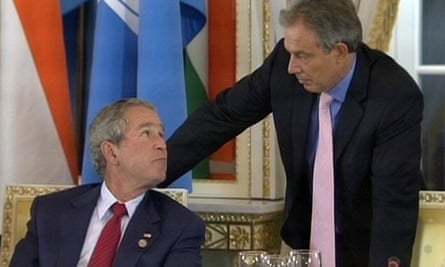
At first glance, this might look like a straightforward example of a politician making a lamentable attempt to be “down with the kids”. Yet the conversation between Bush and Blair was recorded without their knowledge, and there was no thought of trying to impress the younger members of the electorate with this language. This was not the case in 2016 when the Britain Stronger in Europe campaign group – headed by Conservative peer Lord Rose and partly bankrolled by a number of prominent hedge-fund managers – attempted to persuade young people to vote in favour of remaining in the European Union by means of a much-derided, supposedly streetwise advert, complete with obligatory hashtag:
WORKIN, LEARNIN, EARNIN, SHOPPIN, RAVIN, CHATTIN, ROAMIN, MAKIN, MEETIN, SHARIN, GOIN, LIVIN … Make sure you’re #VOTIN
Newspapers have generally been keen to give their readership an insight into the ways of slang. The Observer, only a year after it was first published in 1791, informed the public that “the slang technical term for persons in the pillory is babes in the wood”. These days, most papers run “new words of the year” articles, in which we are told, for example, that twerking had been brought in from the wilderness. This word for a type of dancing had been around in rap circles for roughly two decades – first surfacing in a 1992 New Orleans bounce track by DJ Jubilee called Do the Jubilee All – though the term would have meant little to anyone outside of Louisiana. A friend of mine from Texas tells me that her young son picked up the word in 2005 because so many children evacuated from New Orleans after Hurricane Katrina arrived at his school, bringing local slang with them.
Twerking came to worldwide prominence after a performance by Miley Cyrus and Robin Thicke on 25 August 2013 at MTV’s annual video music awards in New York. Within days, riding the subsequent media storm, Miley had appeared alongside Justin Bieber, singing on a single by rapper Lil Twist. The song was called, with the deathless logic of a corporation at full cry in search of a dollar, Twerk. As blogger Perez Hilton put it: “On the heels of Miley Cyrus’ twerktastic evening at the VMAs comes the single that is going to BLOW YOUR TWEEN MIND!” Or not, as the case may be. Among the comments left by fans below this news item were “puke”, “gross”, “this song sucks”, and the considerably more eloquent “I think this song signals there is no hope for us, it’s over, we had a good run, society, however, has failed.”
Owing to the internet and 24-hour global media, the word twerk went from cool to embarrassing in record time, its recognition factor spreading so far outside its original core group that Private Eye was able to print a cartoon just weeks afterwards, showing a group of elderly gents in cloth caps gyrating arthritically in a building labelled “Twerking Men’s Club”, confident that readers of all ages would understand the meaning of the word.
Slang used to come from the street, from the working stiffs, the grafters, the taxi-dancers, the jack-rollers, the winchester geese, the hep-cats, the old lags, the mollies, the lobsters and the jug-bitten. Much of the time, it still does, but it is now fighting against a tidal wave of fake language deployed by committees of marketing executives or focus groups, all desperately seeking to look cool.
In March 1984, the Guardian’s Washington correspondent, Alex Brummer, reported that the word yuppie was one of “America’s hottest new status descriptions”. (The other he mentioned, yummie – “young upwardly mobile moderate” – seems to have died an early death.) The same year also saw the publication of Marissa Piesman and Marilee Hartley’s tongue-in-cheek work The Yuppie Handbook: The State-of-the-Art Manual for Young Urban Professionals, with its cover showing a power-suited couple proudly sporting must-have items such as a Rolex watch, a Gucci briefcase and a Sony Walkman. Newsweek rounded off December with a cover feature declaring 1984 “the year of the yuppie”.
Yet no one from the streets would have come up with a term based on the words “young urban professional” – it smacked of advertising speak. Far more authentic, and of similar vintage, was the mocking English acronym “lombard” – loads of money but a right dickhead.
In today’s online information blizzard, billions of words are sent out into the fray in the hope of causing a Twitter storm, trending on Facebook or gaining countless plays on YouTube, alongside tap-dancing kittens and the latest celebrity wardrobe malfunction. In recent years, the move towards new slang being invented simply in order sell something or identify a target audience has greatly accelerated. Professional trend forecasters K-Hole – whose name is street slang for an after-effect of ketamine use – coined the term “normcore” in 2013, in which being “normal” is a supposedly radical lifestyle choice. At this year’s Social Media Week gathering in London, the ad for one event urged delegates to “put on your marketing seatbelt and get ready for a content marketing riff-a-palooza of actionable takeaways” – which sounds vaguely as if it might involve suing your local fast-food outlet – while another claimed to have identified a new target audience, the “mipster”, or Muslim hipster.
In the non-online world, people have been telling slang-heavy stories to their friends in bars around the world for centuries, but now if they come home drunk and do it on Twitter or Facebook, using words that are judged to be “inappropriate”, they might find themselves hung out to dry by modern-day vigilantes who can instantly mobilise thousands of signatories. Spend your teenage years plastering social media accounts with the latest slang and your own half-formed opinions, and in 10 years or sooner they will come back to haunt you as prospective employers trawl old sites looking into your background. This is the point at which a self-posted photo of yourself collapsed on a party floor with a toilet seat around your neck, surrounded by zombie-eyed classmates – lovingly annotated with 15 contemporary euphemisms for excessive chemical overindulgence – starts to look like a potential barrier to a career as a future archbishop of Canterbury.
Since the 1980s, a new wave of puritanism has emerged that increasingly seeks to ban anything it holds to be suspect. Witch-hunts are conducted against words, thoughts and modes of behaviour. Judgments are made, sentences passed, and appeals are futile. Ultimately, slang will have no place in this world, because the best of it is guaranteed to offend someone somewhere.
We live in an age in which pretty much every sexual activity known to the human race has been filmed and is available online – something many people in the 60s would perhaps have considered a liberated and long-overdue state of affairs. Yet numerous slang words for describing these activities would now be deemed unsayable in most public forums. That same technological advance has also made it possible to view footage of real-life atrocities, and brutality can be routinely filmed by the perpetrators using a cheap device carried in almost everyone’s pocket. You can watch all of this at the click of a button, but mind your language when you talk about it.
Sounds modern? This slang has previous…
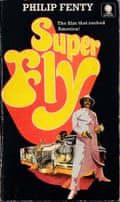
Fly
Now associated with the hip-hop fraternity, fly – a term of approval meaning smart, aware, capable – was in use in London 200 years ago, recorded in the third edition of Francis Grose’s Classical Dictionary of the Vulgar Tongue (1811): ‘FLY. Knowing. Acquainted with another’s meaning or proceeding.’
Groovy
Groovy in its modern sense comes from 1940s jazz, when a band played in the groove. Earlier, it was British slang for someone stuck in a rut, defined in Farmer and Henley’s Slang and Its Analogues (1890): ‘GROOVY, Adj. – Settled in habit; limited in mind.’
Punk
Forever associated with the music revolution of 1976, it began as a slang name for a prostitute, first recorded when Shakespeare was a boy. At the 1722 murder trial of Mary Bolton, a witness called her a ‘nasty draggle tail’d toad, ugly Puss, and stinking Punk’.
Rap
Dr Johnson’s Dictionary of the English Language (1755) listed ‘To RAP out. To utter with hasty violence.’ Wit, Character, Folklore & Customs of the North Riding of Yorkshire (1898), had ‘Rap, n. A friendly chat’ and ‘Rap-off, v. To speak on the spur of the moment.’
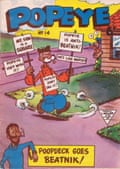
Like
Prefacing every other word with like sounds modern, but the beatniks were there first. In a Popeye comic of 1960, the sailor closes down a beat club his father opened in his cellar, prompting the latter to object ‘Popeye Don’t Dig It’ and ‘He’s Like Wasted’.
Crib
Calling a dwelling your crib, was not unknown in 17th-century England. Eventually it became English criminal slang for a home. Pierce Egan’s 1823 update of Francis Grose’s dictionary lists it as burglar’s terminology: ‘CRIB. A house. To crack a crib: to break open a house.’
Vulgar Tongues: An Alternative History of English Slang by Max Décharné is published by Serpent’s Tail (£14.99). To buy it for £12.29 go to bookshop.theguardian.com or call 0330 333 6846
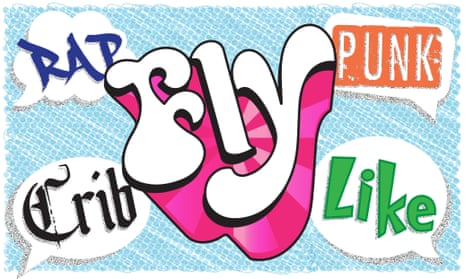
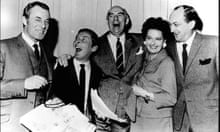
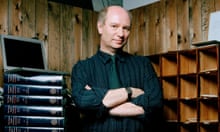


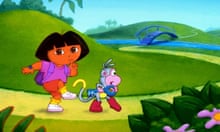
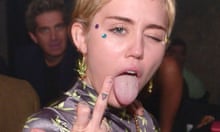

Comments (…)
Sign in or create your Guardian account to join the discussion